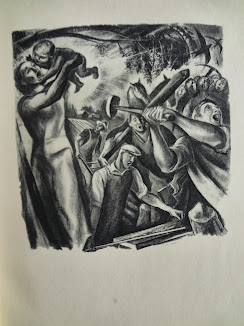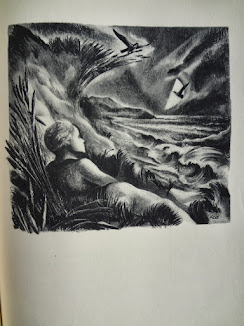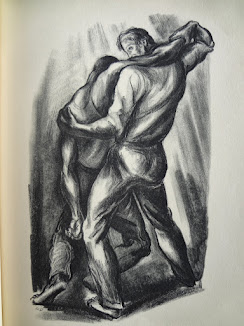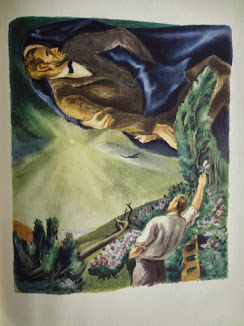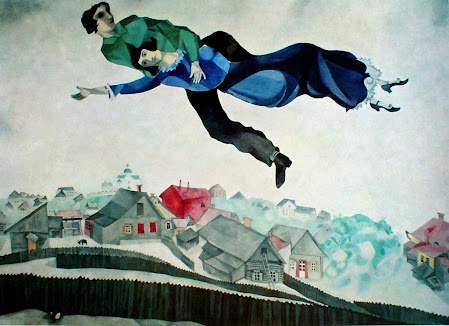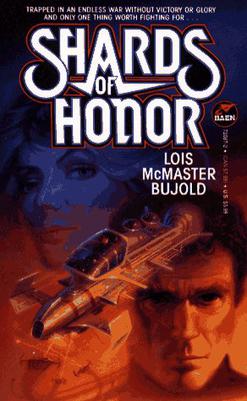Late last week, Goodreads announced a new “policy change”. The announcement opened with a reiteration of policy points regarding reviews which haven’t changed: reviews should be about the book, and members cannot threaten other members. This is what had changed:
[Goodreads will] Delete content focused on author behavior. We have had a policy of removing reviews that were created primarily to talk about author behavior from the community book page. Once removed, these reviews would remain on the member’s profile. Starting today, we will now delete these entirely from the site. We will also delete shelves and lists of books on Goodreads that are focused on author behavior.
Previously, the policy had been that reviews that spoke negatively about author behavior – I will not read this book because something the author sad or did – were removed from the main book page, but were still visible to friends. For those that don’t use Goodreads, if you look up a book, all your friends’ reviews are listed first, then those by people you follow, then the “community reviews”. This last category was where your review would not show up. This policy of hiding reviews I thought was a fair one: one that maintained the social aspects of the site, as users could signal to one another that they weren’t going to read something, and why, while muffling the effects of these peer-to-peer interactions on the larger community.
But Goodreads didn’t go through and just delete all hidden reviews, nor did they remove all shelves entitled “due-to-author” or similar. In this “policy change”, Goodreads instead removed the shelves and some reviews of 21 specific people. As far as I can tell, everyone else’s hidden reviews are still standing, and Goodreads spokesperson Kara indicated on the feedback thread that it wasn’t just the shelf names, but, like, the general feel of the reviews under that shelf header? Which, frankly, looks seriously personal and isn’t so much a policy change as swatting specific users, especially given the tone of the email they received.
Please refrain from posting content like this going forward. If you continue to act in a way that is contrary to the spirit and intent of Goodreads, your account will come under review.
Admittedly, Goodreads has apologized for not giving users time to edit, because alerting people to major deletions and then acting like people should have magically known the policy would change and were violating it on purpose is bunk.
This is the problem: if the reviews in question were all “this person was a dick to me on Twitter/Goodreads/etc”, then I can see Goodreads justifying their removal under the already existing guideline that you can’t say the author owes you money or whatnot. That could be construed as a personal interaction, and therefore not germane. This is a little complicated by the fact that Goodreads and Twitter are public, and the interactions become a matter of record. (At least until they don’t, as these sorts of interaction tend to get deleted.) But, okay, let’s just call them personal interactions, and say that kind of interaction is off the table, and always has been. No need for a policy change, as it’s just a policy refinement. The personal behavior – in the sense of person to person interactions – of an author amounts to gossip, maybe, fine.
But I’m a little more worried about what I see as creep in the policy towards silencing political responses or cultural responses based on the author’s actions or words. Self-avowedly, Mike’s review of Mein Kampf is a troll, because of course it’s stupid to say that you can’t mention that Adolf freaking Hitler was a genocidal maniac. That’s a matter of the historical record, and unassailable. And in fact, when you deny Hitler’s actions, you can go to jail for it in some countries. Manny took the troll a step further in his review of The Destruction of Dresden by David Irving, who was convicted of Holocaust denial in Austria. (The Austrians have, historically understandably, harsher rules about this sort of speech there than in the US.) To quote from Wikipedia, because, shut up, Internet:
In the first edition, Irving’s estimates for deaths in Dresden were between 100,000 and 250,000 — notably higher than most previously published figures. These figures became authoritative and widely accepted in many standard reference works. In later editions of the book over the next three decades, he gradually adjusted the figure downwards to 50,000-100,000. According to the evidence introduced by Richard J. Evans at the libel trial of Deborah Lipstadt in 2000, Irving based his estimates of the dead of Dresden on the word of one individual who provided no supporting documentation, used forged documents, and described one witness who was a urologist as Dresden’s Deputy Chief Medical Officer. The doctor has since complained about being misidentified by Irving, and further, was only reporting rumours about the death toll. Today, casualties at Dresden are estimated as 22,700-25,000 dead.
Irving’s behavior isn’t gossip or personal; it’s a matter of political record. Knowing that he is a Holocaust denier in a history book about the Holocaust is absolutely germane to that content.
Kemper’s review of Josey Wales: Two Westerns is also about the author’s political actions. Asa Earl Carter (who wrote under several pen-names) was a longtime member of the KKK and one of two men credited with the “segregation now, segregation forever” speech by George Wallace. The choice not to read the works of vociferous racists in your precious leisure time isn’t some kind of readerly tantrum, and if it were, what’s it to you? Trigger warning: Asa Earl Carter was insanely racist. That has serious import on his work.
Arguably, GR could take the tack (tact? I’m a little unclear on this idiom) that these are historical actions, and it’s not like the authors are going to be flagging these reviews from the grave (or prison). But let’s take Orson Scott Card. (Take Orson Scott Card! Please!) Paul’s review notes Card’s very active and visible status as an anti-gay crusader. Mr Card has called for the overthrow of the American government, and worked visibly to pass Prop 8 in California. There are boycott movements all over the place for the upcoming film. Noting this isn’t “Card owes me money” or “Card was mean to me on Twitter” but a contextualizing of his work within a political and cultural framework. Orson Scott Card impacts me politically. This isn’t gossip. This is cultural engagement. Of course you don’t have to agree. Of course you can compartmentalize Card’s political beliefs from his work. But the refusal to read Card as a political act is valid too, and it’s a political act that cannot occur without knowledge of the larger context, context provided by reviews such as Paul’s.
I have also taken several swipes at serial plagiarist Jonah Lehrer, in defiance of the new “policy”. The first review was of How We Decide, one of two of his books that were recalled by the publisher for fabrication and/or plagiarism. Drat, I thought, that the book was recalled for its content is actually about the content. So I posted on on his only unrecalled book, Proust Was a Neuroscientist. But this is still about context. Lehrer has just an appalling track record of unprofessional behavior – behavior that has gotten him fired from multiple science writing gigs – and this behavior calls into question any science writing this man has done. He wasn’t mean to me on Twitter, he fudged data, which in a science writer in inexcusable. I guess I could append the namby-pamby “to me”, like science writing is about opinions, but I’m not going to. He violated the basic tenets of the subject he was writing about.
But let’s take this a step down, away from the political or professional. One of the reviews deleted under the new policy was Steph Sinclair’s for The Secret of Castle Cant: Being an Account of the Remarkable Adventures of Lucy Wickwright, Maidservant and Spy. The author, KP Bath, was convicted of possession of child pornography and sentenced to six years in prison, which is also a matter of record. It is germane to a review of his children’s book that he is a convicted pedophile. To quote U.S. Attorney Dwight Holton:
“It is shocking that a children’s author would contribute to the trauma these kids endure — both physical and emotional trauma from the sexual abuse itself, and psychological trauma from knowing that images of that abuse are circulating on the Internet.”
This is not gossip. Multiple reviews still left on Goodreads note this fact and literally nothing else about the book. I reviewed Jerry Sandusky’s book and noted his conviction on 45 counts of child abuse, and I’m not the only one. They are all still standing, because it is patently ridiculous to say that Sandusky’s conviction doesn’t have a bearing on the content of his self-elegy about how great he was to kids, or that Bath’s pedophilia doesn’t factor into his children’s book. That there are many, many reviews still standing that note these facts makes me wonder what the sandwich is going on with this new policy.
It’s looking to me that Goodreads is swatting very specific users, and backing it up with confusing, badly considered “policy changes” that aren’t so much changes as after-the-fact justifications. Out of a site of millions of users, that Goodreads went after 21 people looks underhanded and sneaky. The reason they cannot with clarity articulate what exactly the policy is – it’s not shelf names, or maybe it is; of course you can talk about the author, unless you can’t – is an indicator that it’s not a policy change but the ass-covering actions of an institution acting on some kind of personal whim. Which is absolutely no way to write policy.
But then, it’s not really a whim, more of a signal to users that Goodreads is changing its focus from community development to marketing to authors. Amazon acquired Goodreads last year, and I think this is the signal that things are going to change to a more business friendly site. There have always been important differences in Amazon and Goodreads reviews: Goodreads allows profanity, for example, because it’s not a store, but social network. (The terms of service, like most social networking sites, specifically disallows users under the age of 13, so you don’t have to think of the children.) There has never been a downvoting system on Goodreads either, because it really doesn’t matter if the review is “helpful” to every user; it has not been about sales. While I’ve been reluctant to engage in paranoid tin-foil-hattery about how Amazon was going to ruin everything, it is not mouth-frothing to note that Amazon has to make their money somehow, and I can tell you it’s not necessarily going to be through book sales, but the marketing dollars of authors.
In this interview by Community Manager Patrick Brown about Goodreads uploaded in August, he focuses largely on the utility of Goodreads to authors. explaining their recommendation algorithm and discussing how the social networking aspects fuel the discovery process. (Discovery being the buzzword these days about how writers go about getting a book into the hands of readers, as the traditional publishing model splinters and bursts into flames.) Reviews that focus on author behavior – and of course we are not children, so we know this means negative reviews that focus on author behavior – are disruptive to the discovery process from the point of view of the author: you are hearing about my book all wrong!
So, so many of the writings I see out there discussing this policy change note the recent allegations of a young woman who claimed to have been bullied on Goodreads. Salon asks: Did a writer get bullied on Goodreads? They repeat her initial claims that her book was tagged with shelves titled “author should be sodomized” and “should be raped in prison”. The link to her Tweets, which was the only evidence of this claim, goes to a deleted page, and there was never a link to any Goodreads shelves, because they never existed. (Here we get into the issue of why a self-referenced post on Twitter isn’t a credible source, for those paying attention, journalists.)
If you actually bother to read to the end of the article, there’s a lame ETA noting that that she eventually issued an “LOL, my bad”, admitting she misunderstood pretty much everything about Goodreads reviewing culture, the shelving system, and that the rape and death threats had never occurred. If you want an extremely thorough accounting of the timeline of events, check this post on ThreeRs, which documents copiously what exactly happened.
The damage had been done at this point, unfortunately, because in this brave new journalistic world that drives blog-arms of media outlets to half-ass their sources in order to get pages up fast while the controversy is breaking – page views! (I’m assuming things here about Goodreads’s motivation, but I can’t really figure why they’d kick this hornet’s nest so hard if they weren’t attempting to appear “tough on bullying” or something. Especially factoring in the recent rape threat meltdown on Twitter.) In this sloppy, bloggy new journalism, you get articles like this one on CNN, which credulously reiterates the fiction that an author had been bullied on Goodreads ZOMG, citing the Salon article, ignoring the retraction, and anemically noting that:
It’s hard to corroborate Howard’s story when she’s deleted her Tumblr (it’s not available in Google’s cache) and many of the Goodreads reviews and shelves allegedly devoted to bullying her have also been deleted. In addition, Howard backtracked on some of her statements.
Spoiler alert: you can’t corroborate the story because it didn’t happen that way at all.
But let’s just backtrack. Let’s say Howard’s books had been shelved in ways that said she should be raped and murdered. This would be horrible and wrong, and it would be right of Goodreads to delete these shelves and ban the users who said such things. I have seen threats on Goodreads – usually users against users and not involving authors at all – and Goodreads has always been good about deleting them once the comments have been flagged. (And sometimes going so far as to ban users.) The policy in place was already equipped to deal with personal threats.
Extending the Goodreads Terms of Service to this vague, mushy, overly broad policy about “author behavior” doesn’t solve Goodreads’s PR problem out there due to bad journalism, irresponsible blog posts, and the fact that people on Internet can suck. Maybe what they mean is “Twitter isn’t a credible source” (actually, no it isn’t) or “no more personal interaction stories, even secondhand ones” (ok, that’s a shift, but a slighter one than this encompassing “behavior” nonsense.)
Goodreads has been reticent to discuss specific user’s deletions, which I guess makes sense in terms of not gossiping in public about users, but in terms of parsing what exactly they are looking for, make it very difficult indeed. Goodreads employee Kara notes:
Anyone else with reviews or shelves created prior to September 21, 2013 that will be deleted under the revised policy will be sent a notification first and given time to decide what to do. [emphasis hers]
I take this to mean that reviews not adhering to this vague policy written after the announcement will be deleted without notification. Given that I can’t even tell what’s actionable anymore, I find this incredibly chilling. Way to turn a PR problem into a firestorm, Goodreads.
The implementation of this policy change has been breathtakingly badly managed, and the thinking behind their shift muzzy and indistinct, when it doesn’t look calculated towards aims that have nothing to do with the reviews in question. Goodreads has moved from muffling users to silencing them because they are shifting their focus from peer-to-peer interactions – a social network – to the marketing potentials in a website of 20 million readers. It’s been said before, but the user is the product on any social networking site. They can’t sell you if you won’t behave.

This work is licensed under a Creative Commons Attribution-ShareAlike 3.0 Unported License.


